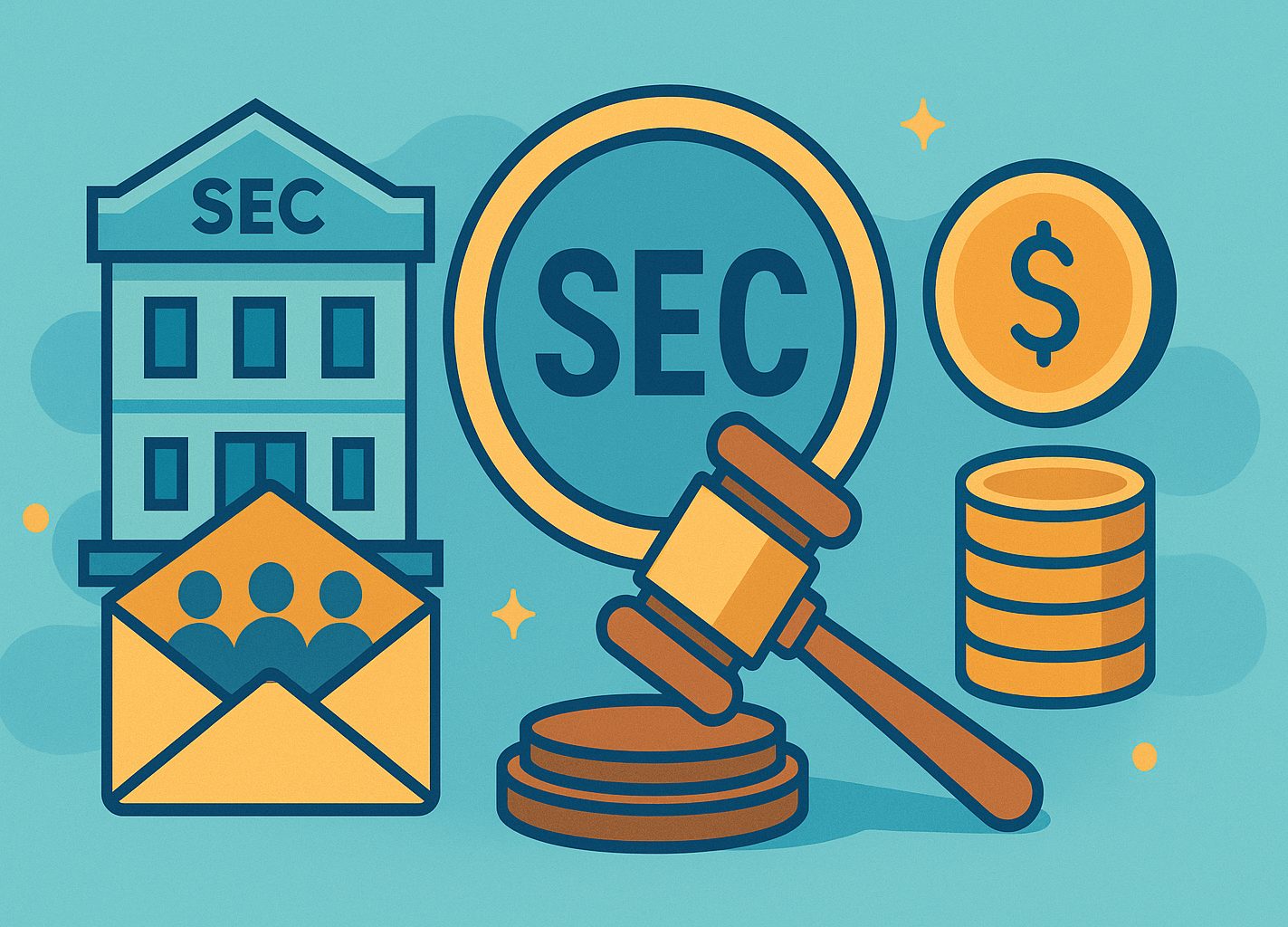Accredited Investor Rules in Debt Crowdfunding
Debt crowdfunding has unlocked new pathways to capital for startups and small businesses by allowing them to borrow directly from individual investors. Yet when it comes to attracting larger sums of money—particularly from high-net-worth individuals—understanding accredited investor rules becomes critical. These regulations, defined by the U.S. Securities and Exchange Commission (SEC), govern who may participate in certain private debt offerings, ensuring that individuals investing substantial amounts possess the financial sophistication and resources to absorb potential losses. Navigating these rules may seem daunting at first, but mastering them unlocks access to deeper pools of funding and elevates your campaign’s credibility among a discerning investor base.
Why Accredited Investor Status Matters
When you launch a debt crowdfunding campaign, you must balance two competing priorities: reaching as many supportive backers as possible while safeguarding investor interests and complying with securities laws. Accredited investors—those who meet specific income, net worth, or professional criteria—are deemed capable of evaluating higher-risk investments without the same protections afforded to the general public. By structuring a portion of your offering exclusively for accredited investors, you can raise unlimited capital under Regulation D exemptions, deploy aggressive marketing strategies like general solicitation, and expedite the fundraising process. Moreover, accredited-only segments signal prestige; when high-net-worth individuals endorse your project, it inspires confidence among other backers and partners.
The SEC’s Definition of an Accredited Investor
Under Rule 501 of Regulation D, the SEC outlines multiple pathways to accredited status. Individuals qualify if their annual income exceeds $200,000 (or $300,000 jointly with a spouse) for the past two years with the expectation of continuing at that level. Alternatively, having a net worth exceeding $1 million—either alone or jointly with a spouse—excludes the value of their primary residence. Beyond these financial thresholds, the SEC also recognizes certain professional designations and roles: licensed securities brokers and investment advisers, knowledgeable employees of private funds, and holders of specific industry certifications such as the Series 7, Series 65, or Series 82 licenses. This broader definition acknowledges that expertise and access to resources can sometimes substitute for raw income or assets.
Accredited Investor Criteria for Entities
Individual criteria alone do not cover all scenarios. Many startups and platforms welcome investments from entities such as trusts, corporations, or family offices. Under SEC rules, an entity qualifies as accredited if its total assets exceed $5 million and it was not formed specifically to purchase the securities in question. Other qualifying entities include banks, insurance companies, registered investment companies, and employee benefit plans with at least $5 million in assets. Recognizing these distinctions helps you craft debt offerings that accommodate a variety of sophisticated investors, from angel syndicates pooling resources to institutional vehicles seeking alternative yield opportunities.
Regulation D Exemptions and Accredited Investors
One of the most powerful tools in debt crowdfunding is Regulation D, which provides safe harbors for private offerings exempt from full SEC registration. Rule 506(b) permits unlimited fundraising from accredited investors and up to 35 sophisticated non-accredited investors, as long as no public advertising takes place. By contrast, Rule 506(c) allows general solicitation—such as advertising your campaign on social media or via email blasts—provided that all participants are verified as accredited. This distinction is particularly valuable for debt issuers: with Rule 506(c), you can expand your marketing reach to tap affluent networks and professional communities, while still maintaining the legal shield of an exempt offering.
The Verification Process: Best Practices
Verifying accredited investor status is more than a compliance checkbox; it’s the gateway to risk management and trust. Under Rule 506(c), issuers must take “reasonable steps” to confirm that each investor meets accredited thresholds. Best practices include collecting and reviewing financial documentation—such as tax returns, bank and brokerage statements, and credit reports—and leveraging third-party verification services that specialize in accrediting investors. Some platforms incorporate digital portals where investors can upload documents securely, reducing administrative friction and ensuring audit-quality records. Clear communication about the verification requirements and process not only accelerates enrollment but also signals professionalism that attracts top-tier investors.
Crafting Accredited-Only and General Investor Tranches
Many debt crowdfunding campaigns adopt a dual-tranche structure: one window exclusively for accredited investors and another for the broader public under Regulation Crowdfunding (Reg CF). This hybrid approach capitalizes on Reg D’s unlimited raise capacity and Reg CF’s community-building benefits. To implement it, you might open an early bird offering for accredited backers—often at preferential interest rates or more flexible terms—before opening a Reg CF tranche to non-accredited supporters. By staggering these windows, you secure cornerstone funding from accredited investors, which serves both as financial runway and as social proof when you later invite the general public to participate.
Communicating Accredited Investor Benefits
Although accredited investors are typically well-versed in private offerings, your campaign’s marketing still benefits from articulating specific advantages. Enhanced protections—such as audited financial statements, investor councils, or rights to attend board observer meetings—can make your debt offering especially attractive. Specialized perks might include higher interest rates, pro rata rights in follow-on debt rounds, or access to exclusive networking events with company leadership. By clearly highlighting these benefits in your investor materials, you underscore the value of accredited participation and motivate high-net-worth individuals to allocate capital to your startup.
Legal Pitfalls to Avoid
Failing to adhere to accredited investor rules can derail your entire campaign. Common missteps include: relying solely on investor self-certification without document review; engaging in general solicitation under Rule 506(b); or inadvertently including non-accredited investors in a 506(c) tranche. Each violation exposes you to potential SEC enforcement actions, rescission rights for investors, and reputational harm. To sidestep these pitfalls, establish a rigorous compliance framework from the outset: map each exemption’s requirements, train your team on verification protocols, and audit your enrollment records before accepting funds. When you pair diligence with expert counsel, you protect your fundraising momentum and investor relationships.
The Role of Crowdfunding Platforms
Leading debt crowdfunding intermediaries integrate accredited investor compliance tools directly into their platforms. They automate document collection, flag incomplete verifications, and maintain secure repositories of investor credentials. Many also guide issuers through exemption selection, providing templated disclosure documents and filing assistance for Form D notices. By partnering with a platform that excels in accredited workflows, you minimize manual errors, reduce legal costs, and accelerate your time to market. Choose an intermediary with a strong compliance track record and responsive support team to ensure your campaign sails smoothly through regulatory waters.
Impact on Campaign Structure and Timelines
Incorporating accredited investor rules influences not only your marketing scope but also your campaign timeline. Verification processes, legal reviews, and SEC filings—particularly Form D for Reg D offerings—demand lead time. Plan a phased launch: begin with preparatory steps such as compiling financial disclosures, engaging counsel, and configuring your platform’s verification flow. Allow several weeks for investor onboarding and accreditation checks before announcing your campaign publicly. By building in these buffer periods, you avoid rushed mistakes, give accredited investors ample time to commit, and create momentum that carries into your general fundraising efforts.
Case Studies of Accredited-Focused Debt Raises
Several startups have successfully leveraged accredited investor rules to fuel rapid growth. For example, a renewable energy developer opened a Rule 506(c) debt tranche, marketing through targeted institutional networks and raising its $10 million goal in under three weeks. Simultaneously, the campaign initiated a Reg CF offering for community investors, adding grassroots support and enhancing brand loyalty. Another tech venture structured a convertible note exclusively for accredited participants, offering preferential conversion terms and attracting high-profile angel investors. These case studies highlight the strategic advantage of accredited-focused tranches: faster raises, deeper funding pools, and a strong backer base to amplify broader campaigns.
Preparing for Ongoing Compliance and Reporting
Once your accredited investor tranche closes, compliance doesn’t end. Reg D 506(c) offerings are exempt from ongoing SEC reporting, yet prudent issuers maintain voluntary updates—quarterly financial summaries, milestone notifications, and performance dashboards—to uphold transparency. For Reg A Tier 2 offerings, mandatory annual and semi-annual reports apply. Recognizing these obligations early ensures you have systems in place to produce timely, accurate information. A proactive approach to reporting deepens investor confidence and lays the groundwork for future fundraising rounds, whether through debt, equity, or hybrid instruments.
Integrating Accredited Investor Strategies with Crowdfunding Starter Quiz
As you refine your approach, our crowdfunding starter quiz can pinpoint the ideal mix of exemptions and investor segments for your project. By answering a few targeted questions about your funding goals, investor profile, and operational capacity, you’ll receive customized recommendations on leveraging accredited investor rules effectively. This tailored insight accelerates your compliance planning and aligns your campaign structure with your startup’s unique vision.
Conclusion: Unlocking Accredited Capital with Confidence
Understanding and applying accredited investor rules transforms debt crowdfunding from a novel concept into a powerful financing engine. By mastering SEC criteria, implementing rigorous verification, crafting strategic tranche structures, and maintaining ongoing compliance, you tap into high-net-worth networks that can propel your venture to new heights. As you embark on your next crowdfunding campaign, remember that diligence and expert guidance are your greatest allies. Combine the insights from this guide with our crowdfunding starter quiz to chart a clear path toward accredited capital—and watch your startup’s growth trajectory accelerate with the support of sophisticated investors.




